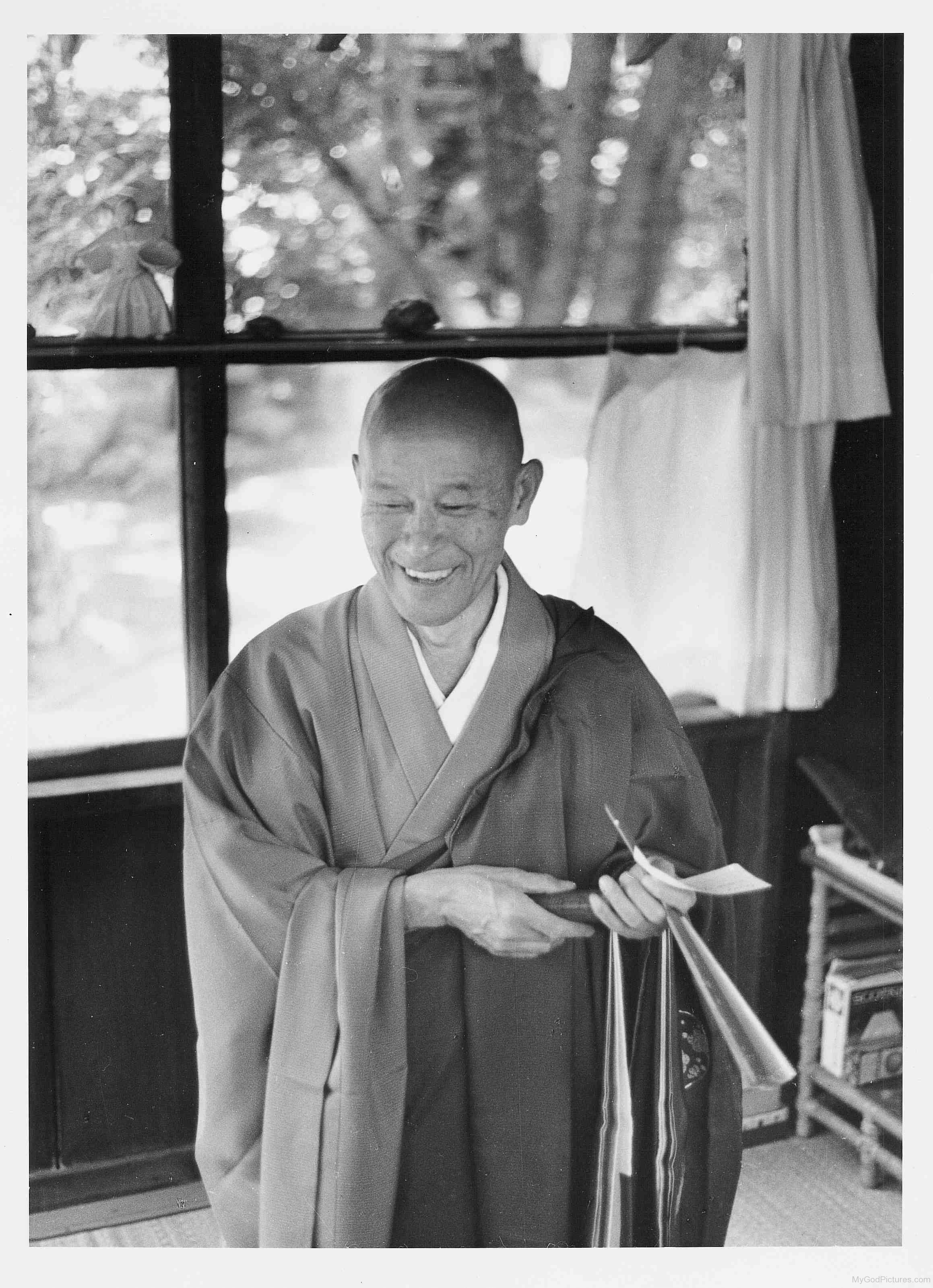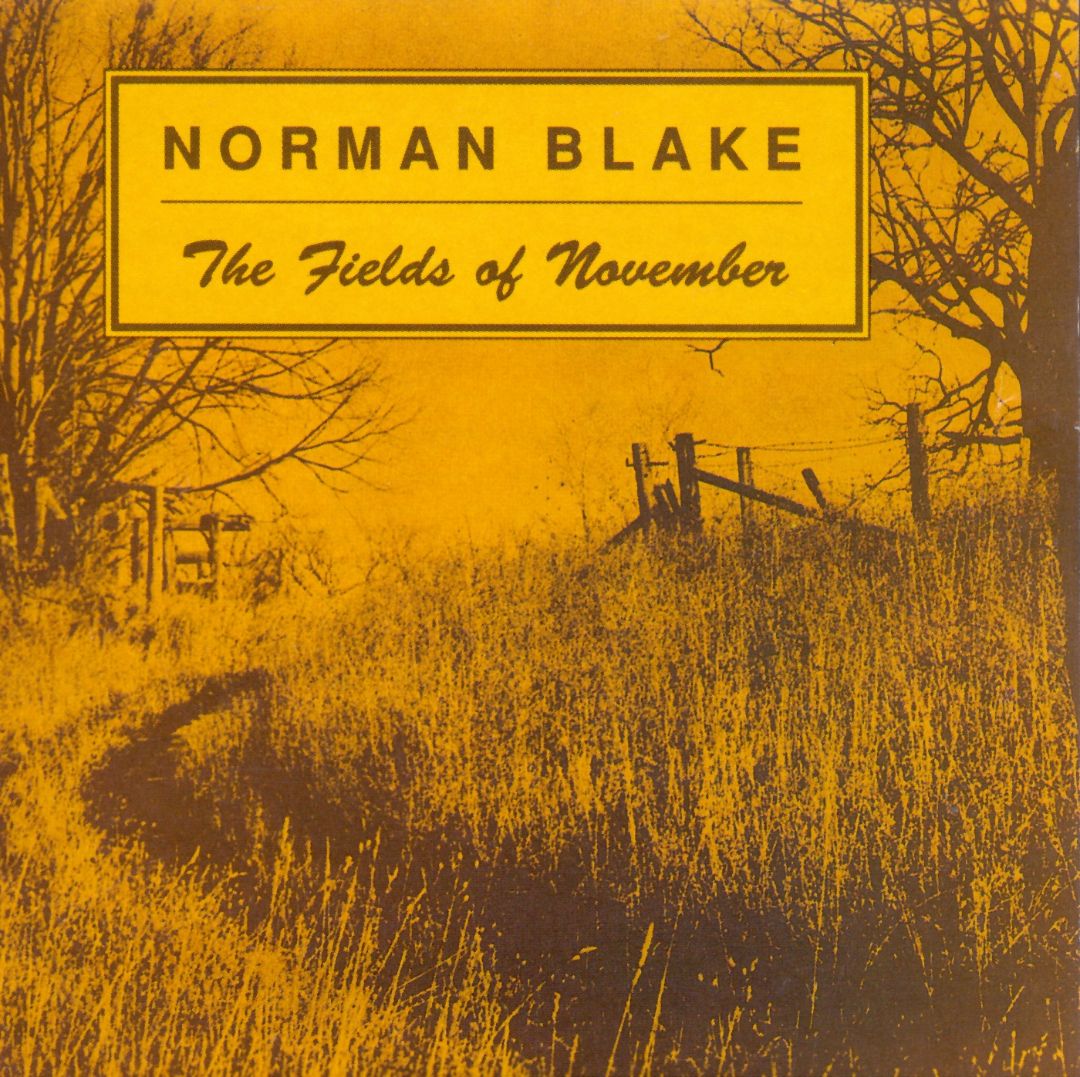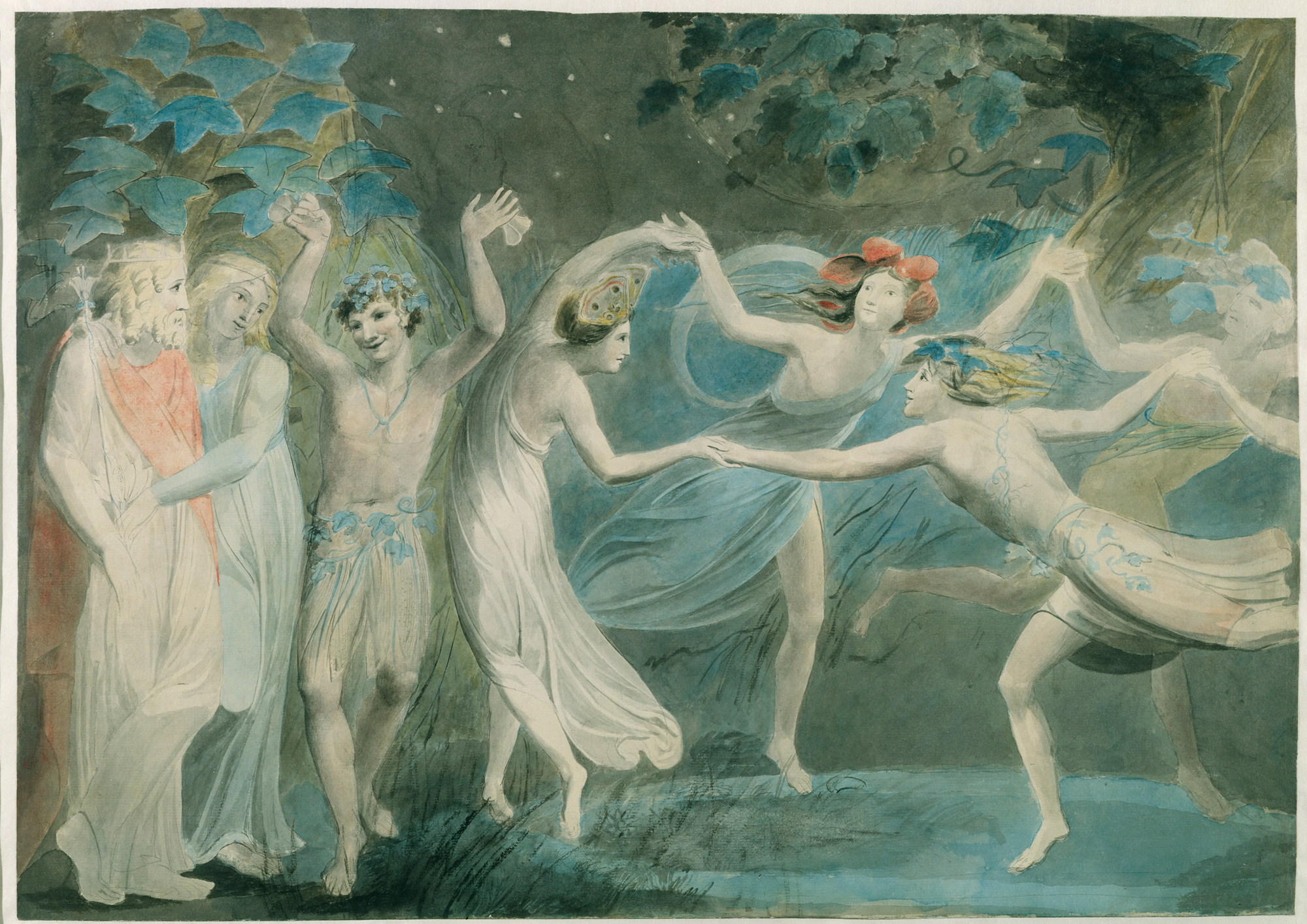Blake, Oberon, Titania and Puck with Fairies Dancing, 1786
SCENE I. A wood near Athens.
Enter, from opposite sides, a Fairy, and Puck
Puck
How now, spirit! whither wander you?
Fairy
Over hill, over dale,
Thorough bush, thorough brier,
Over park, over pale,
Thorough flood, thorough fire,
I do wander everywhere,
Swifter than the moon's sphere;
And I serve the fairy queen,
To dew her orbs upon the green.
The cowslips tall her pensioners be:
In their gold coats spots you see;
Those be rubies, fairy favours,
In those freckles live their savours:
I must go seek some dewdrops here
And hang a pearl in every cowslip's ear.
Farewell, thou lob of spirits; I'll be gone:
Our queen and all our elves come here anon.
Puck
The king doth keep his revels here to-night:
Take heed the queen come not within his sight;
For Oberon is passing fell and wrath,
Because that she as her attendant hath
A lovely boy, stolen from an Indian king;
She never had so sweet a changeling;
And jealous Oberon would have the child
Knight of his train, to trace the forests wild;
But she perforce withholds the loved boy,
Crowns him with flowers and makes him all her joy:
And now they never meet in grove or green,
By fountain clear, or spangled starlight sheen,
But, they do square, that all their elves for fear
Creep into acorn-cups and hide them there.
Fairy
Either I mistake your shape and making quite,
Or else you are that shrewd and knavish sprite
Call'd Robin Goodfellow: are not you he
That frights the maidens of the villagery;
Skim milk, and sometimes labour in the quern
And bootless make the breathless housewife churn;
And sometime make the drink to bear no barm;
Mislead night-wanderers, laughing at their harm?
Those that Hobgoblin call you and sweet Puck,
You do their work, and they shall have good luck:
Are not you he?
Puck
Thou speak'st aright;
I am that merry wanderer of the night.
I jest to Oberon and make him smile
When I a fat and bean-fed horse beguile,
Neighing in likeness of a filly foal:
And sometime lurk I in a gossip's bowl,
In very likeness of a roasted crab,
And when she drinks, against her lips I bob
And on her wither'd dewlap pour the ale.
The wisest aunt, telling the saddest tale,
Sometime for three-foot stool mistaketh me;
Then slip I from her bum, down topples she,
And 'tailor' cries, and falls into a cough;
And then the whole quire hold their hips and laugh,
And waxen in their mirth and neeze and swear
A merrier hour was never wasted there.
But, room, fairy! here comes Oberon.
Fairy
And here my mistress. Would that he were gone!
Enter, from one side, Oberon ...






























.png)
















































































































































